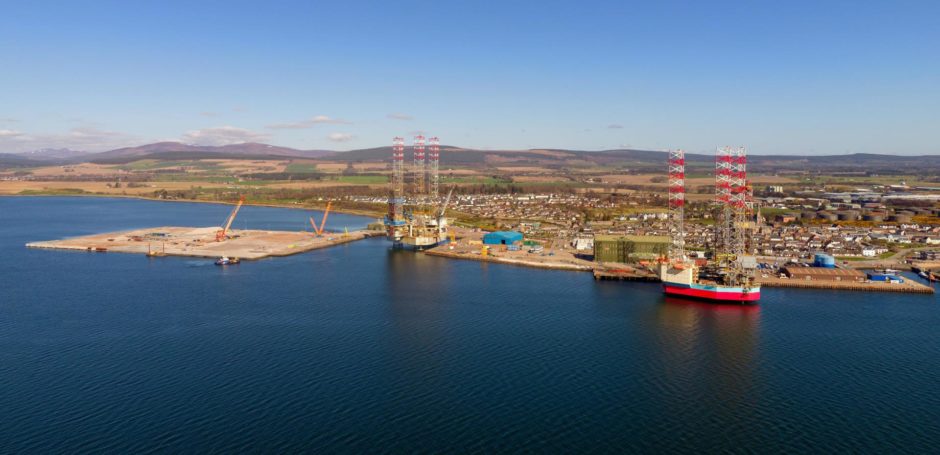
Research on how green hydrogen technologies can be used to create a cleaner fuel to be used out at sea has been launched in Easter Ross.
The £280,000 project is the first to be undertaken by the Highlands-based “global centre of excellence” called the Power House.
It is funded by the UK Department for Transport’s flagship clean maritime demonstration competition, delivered in partnership with innovation agency, Innovate UK and is set to last until March 2022.
The Power House was launched earlier this year by Opportunity Cromarty Firth to work on research into innovative renewable energy technologies.
The project will test how green hydrogen technologies can be used to minimise the maritime industry’s environmental footprint.
Bob Buskie, Port of Cromarty Firth chief executive, said he hopes the project “will change the face of the maritime industry”.
The Power House, based at Tern House, in Alness Point Business Park, Easter Ross, was launched in a bid to secure a leading role for the area in the development of floating wind and green hydrogen technology.
Led by manager Mina Hanna, the Power House is joining forces with the Port of Cromarty Firth, St Andrews University, ZEM Fuel Systems and Low Emissions Resources Global.
The project aims to develop a novel solid oxide fuel cells (SOFCs) system to efficiently convert ammonia as a liquid hydrogen carrier directly into water and nitrogen, yielding electric power.
Over seven months, project partners will conduct trials to monitor performance at scale of the SOFCs system and establish longer-term durability testing.
Mr Buskie said: “This project is fantastic news for the Power House and the port is proud to be involved in it.
“The opportunities presented by green hydrogen are vast and its importance to not only the future of the maritime industry but the UK as a whole cannot be overestimated.
“Together with our partners, we hope this project can change the face of the maritime industry, and make it an exemplar of clean, green transportation methods for decades to come.”
Mr Hanna said: “It is great that we can announce this fantastic joint research project with our partners which is expected to lead to major advances towards decarbonising the maritime sector to help Scotland and the UK achieve their net-zero climate obligations.
“The Power House forecasts significant opportunities in maritime innovation, with hydrogen derivative fuels expected to play a major role in decarbonising the sector.”
St Andrews University professor John Irvine said: “Emissions from maritime are a highly significant contributor to both greenhouse gases and air pollution that has barely been addressed to date. It is critical we urgently work on appropriate decarbonisation solutions for this sector.
“The Cromarty Firth project on producing green hydrogen at scale is critically important to advance global net-zero ambitions.
“Underpinning this is the need to train lots of skilled people to implement these new technologies, without these technicians there can be no solution.”
Recommended for you
